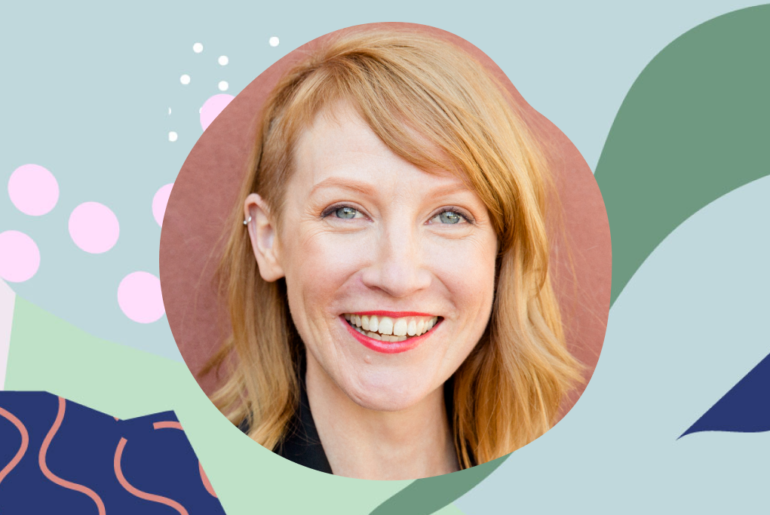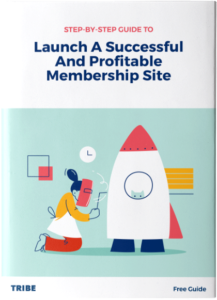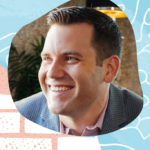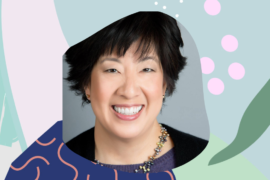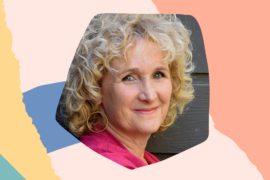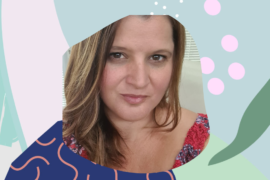Belinda Weaver pursued a “safe” career in IT and worked as a computer programmer, but soon discovered that things were much more fun in her company’s marketing department. She got bored in her niche and was looking for a new opportunity when she discovered freelance copywriting. She soon built a business that gave her newfound freedom and the opportunity to quit her job. Now, at Confident Copywriting Membership, Belinda teaches other copywriters how to build thriving businesses, express themselves, and get results. She gets to do what she loves every day, helps others succeed, and has scaled her income and availability by going beyond one-on-one client work. Today, Belinda joins the podcast to share the story of walking away from a safe education, career, and niche to pursue something she truly felt passionate about. You’ll learn how she turned her expertise into powerful learning materials and gives the gift of her life-changing opportunity to others.
Key Takeaways
- Why a “safe” career didn’t work for Belinda – and how her boredom naturally led her to a new career in marketing, then to copywriting.
- The difference between doing a job and owning a business – and how Belinda created a life for herself that made the most of her passion.
- The key differences between writing a high school essay and writing effective copy – and what Belinda does to teach this.
- How the membership model goes beyond basic teaching to help Belinda empower other copywriters.
Free Give
FREE Guide – Launch & Grow a Profitable Membership Site
Ready to reclaim your time and attract more monthly paying customers? Our step-by-step guide will show you how to build a membership site that turns your passion into recurring profit. Click here to download!
Memorable Quote
- “One of the most important things about copywriting is to sound like yourself.” – Belinda Weaver
- “If you’re worried that there’s too many people in the space already, don’t, because they will choose you for being you and if you’re worried that you’ll run out of ideas, you absolutely won’t.” – Belinda Weaver
Episode Resources
Transcript
Read The Transcript
[INTERVIEW]
Shelli Varela: Belinda Weaver, welcome to the It’s a TRIBE Thing Podcast. How are you?
Belinda Weaver: I’m fantastic. The weather is sunny, the day is Friday, and it’s all good. Thank you so much for having me here.
Shelli Varela: It’s our absolute pleasure. You have a membership site called Confident Copywriting and copywriting and storytelling is definitely my wheelhouse so I’m super excited to unpack that. But I’m wondering before we do if you can share with our amazing audience who you were before you were a membership site owner, who you were before you were a copywriter, and how did life bring you to where you are currently.
Belinda Weaver: Well, the membership is actually relatively new. So, we have a lot of my life that came before the Confident Copywriting Membership. I actually graduated from university as a programmer and I worked in IT programming in a very old language at a bank for many years. It was an exciting life for a 20-year-old just out of university and then I started to look at the marketing team and realize that’s actually where all the fun is. So, I went back to school. I did my master’s in marketing and I was having a much more rewarding career and it was fantastic but I found myself a few years later writing really boring marketing and an incredibly boring niche. And that’s when I started to question my life choices or at least where I was working. So, I was at this moment in my life where I’d gone from being completely stifled by IT because it really was not what I should have been doing to kind of liberated by marketing, but then bored with what I was writing about day in, day out, and I was looking for the next opportunity.
I was starting to wonder what am I going to do for the rest of my life like is this as good as it gets? My husband and I were talking about starting a family. So, I was really open to a new opportunity and I ended up going to one of these kinds of sales day conferences and one of the speakers talked about copywriting. More specifically at the end of her talk, she talked about being a freelance copywriter and I remember that moment so well. I still get a little sweaty when I think about it because it literally changed my life. It was like a fire had been lit in me and I discovered, in air quotes, “my passion and my purpose”. And so, what I did after that, I went back to the office. I looked up copywriting courses. I convinced my boss that they should pay for the copywriting course because it was directly related to my work. And I started learning my craft and I started practicing my craft day-to-day in my day job, and I registered my business.
And so, I was running this side gig while working full-time for about six months. I was starting to get leads in. I was doing a little bit of social media marketing. I was figuring out how to create a website and what I needed to do to do the accounting while also figuring out how to write copy and how to work with clients. And while it was completely overwhelming, it was also this moment of freedom. I’d never realized work could be so glorious as working for myself and it was fantastic and at six months, I realized, if I had more time, I could get more clients. And it was a proven marketing cycle because my side gig income from copywriting was almost matching my monthly full-time salary from marketing. So, that’s when I was like, “Right, I’m out of here. See you later, crew.”
Shelli Varela: That’s incredible. Okay. I just want to circle back because there’s so much here to unpack that’s going to be valuable for everybody listening. When you very first started out and you were deciding what you were going to take in school, what were the thoughts that led you to computer programming? And what I mean by that is oftentimes, we are led by what we believe we should do or what the safe thing is because what I noticed as you unpack your story, and brought us along with you on the journey was this transition into listening to what was true and to paying attention and to uncovering the things that lit you up or lit your fire, as you said. So, what was it that originally brought you to computer programming?
Belinda Weaver: It was exactly what you said first. It was a safe choice. It was a sensible choice. My father had the foresight to realize that if I invested in skills that would give me a good job, then I would be set up very much. We were very much an education-focused family. So, when I was making my subject choices, my father very much said, “We need to make sensible choices in order to give yourself the most options,” and I ended up choosing IT because I got the best grades in that and I was like, “Hmm, maybe that’s what I’m supposed to be doing.” And it was kind of cool like I did really enjoy going to uni and I enjoyed my first couple of years working but then I thought, “Oh, is this right? Is this it? Is this the rest of my life? I’m not cut out for this detailed, oriented, really pragmatic, functional work.”
So, I began to look at other things and that’s when I started working closer to the marketing department because people started noticing that I was good at writing some of the documentation around the programs. And the marketing team really sucked at that. So, there was this kind of connection. They were like, “Well, would you like to start working with the marketing department to help them with this?” Oh, yeah. And that’s when I discovered fun days, golf days, client days, things like that.
Shelli Varela: Right. The things that bring you alive.
Belinda Weaver: Yeah.
Shelli Varela: I love this because you were talking about a job versus what you’re doing now, which is a business and a membership site. And I’m wondering if you’d be willing to speak to, and not that there’s anything wrong with having a job by any means, but what I hear often from entrepreneurs is when they describe the difference between a job and a business and what you just said was when you started following your passion and when you started working for yourself and following your joy, following your passion, following your bliss, how not only were you making a bunch of money, but the day started flying by. What do you think the cost is, speaking of job versus a business, say a membership site? What is the cost do you think of taming your passion? Because you had talked about when you were going to university, and it was the safe choice and that was the wise choice, and it was something you should do because you were kind of good at it and it was reliable, what do you think the cost is actually obtaining your passion?
Belinda Weaver: Well, you always hear this phrase, “If you do something you love, you’ll never work a day in your life,” and I had heard that but I just didn’t get it. I just did not connect with this idea of doing something every day as work with a capital W, that I loved so much that I didn’t really mind doing it. And that was the big transition for me where I was good at stuff, I had fun days and okay days and I like the people I work with mostly. I don’t think you can ever like everyone in the corporate office. And it was fine, but is fine good enough for the rest of your life? And I didn’t really appreciate that I was living with fine and good enough until I discovered something that I really wanted to do. And when I talked about it, it lit a fire under me, it really did. I realized that I was going to make it work no matter what. And it wasn’t just like, “Am I good enough for this? Can I make it work?” It was, “I am going to make this work and I am going to figure this out no matter what.” And it was a complete shift in the way I thought about how I spent most of my day. So, I think if you haven’t found that thing or if you have found that thing, and you’re putting it in a smaller box within yourself, then you are resigning yourself to just fine.
Shelli Varela: Yeah. And there is a deep personal spiritual cost to settling for fine when you were born to be incredible.
Belinda Weaver: Yes, that’s right. And it sounds like a cliché, but when you’ve figured on that idea, even if you haven’t given it the right space to flourish inside, you know it’s there, then you’re always living a second-best life.
Shelli Varela: I always love the phrase, “Every topic is actually two topics.” It’s the having of something and the lack of something. And so, it’s like it’s your perspective on which way you look at a thing. And what I loved for you is you were in a situation that was creating contrast, that was creating something that you didn’t love. I guess the lesson for all of us is don’t be afraid of the contrast because while it does maybe reveal to you something that is “fine” or “okay” or maybe not serving you properly, it also shines a light on what is your calling, what does light you up, what does put that fire underneath your button and get you going and saying like to your point, “I’m going to do that.”
Belinda Weaver: Yes, 100%. And as I said, I think I didn’t connect with the idea until I found my thing. And once you find your thing, you know it whether you acknowledge it or not.
Shelli Varela: I love it. Let’s dive into what you actually do. Because I am fascinated with storytellers, of storytelling, and the ability for a story or an idea to elicit an emotion in your audience. And as we know, especially if you have a business and you want your copy, your copywriting to convert, we have to be able to take the audience on an emotional journey. Can you talk about the difference between say the features and the benefits of copywriting? I have this saying I always say, “Your audience gets no job,” meaning don’t leave anything for them to figure out. If you want them to notice something, to feel something, to realize something, you have to really make it apparent. And copywriting is an incredible gift and I love that you’re teaching people the skill of doing that because it really is the engine that then drives your business and drives the results of your people.
Belinda Weaver: Yes, 100% and I’m so glad you asked this question. This is so far out of my pipe. I love talking about copywriting. Obviously, it’s good. It’s my duty. But I think one of the things before I get into features and benefits, one of the things that really trips people up is this thing that happens when we are tasked with writing. So many people I know and clients I work with and even copywriters I teach say, “Oh, I’m fine if I can talk to people but it’s much more difficult when I sit down to write.” And I think we have our high school English teachers to blame like we all think that somehow, we need to write this formally structured grammatically correct piece when we’re writing marketing for our business but writing great copy is so much more than that. As you said, it’s to elicit a response and that might be clicking a button or it might be seeding an idea or it might be shifting someone’s complete worldview like the scope is incredible. And one of the most important things about copywriting is to sound like yourself.
When you take away this idea that it has to be this high school English essay that is going to be graded with a red pen and just talk like yourself, it’s so much easier. But going back to features and benefits, like the technical descriptions are that features are a fact or a piece of information about what something has. I’m looking at a glass, a feature is the material that it’s made of, how it’s cut, what it weighs, you know what size it is. They’re all facts about the thing. When we move into benefits, we’re talking about the impact it has to our lives. So, that is usually much more emotional and a challenge that people often have when moving from features to benefits because we do need both in our copy is we often like I use a technique called the so-what technique. So, I start with a fact about the thing that I’m writing about and I imagine a real grumpy customer in front of me saying, “So what? Why should I care about that?” And I have to explain why this is useful and relevant and meaningful. But they keep saying, “So what? Why should I care?” And you have to keep going deeper and deeper and deeper until you get to a meaningful benefit.
The challenge is that we often get to saving time, saving money, saving stress, and we stop. But the important thing is, yes, that’s good but the really meaningful benefit is what we do with the money and the time and the stress-free life. That is when you can really hook people into the bigger picture of what it is you’re selling. Because when we make decisions, we make emotional decisions and we make rational decisions. We usually make the emotional decision first and then we look for the logical rational features to justify the emotional decision we’ve made, but we can’t make the emotional decision based on you’ll save some money, right? I want to save some money but I also want to take my family on that dream holiday. That’s more important.
Shelli Varela: Absolutely. And just to be clear, any great movement in history has started with great copy or a great speech or the ability to impassion a crowd. When you think of the Martin Luther King, I Have a Dream speech, what he was talking about was not just the political climate. What he was doing was painting a vision of what things would be possible if they saw the world the way he saw the world.
Belinda Weaver: And in copywriting, we call that future pacing. You have to let people try on the future version of themselves and you can do that by describing it really vividly because we’re much more likely to take steps to make that future possible if we’ve imagined it, if we’ve tried it on even for a few minutes
Shelli Varela: I love it. So, now that you have created a membership site, what is the benefit for you of having a membership site where you can work closely with these people and start creating those results and the transitions for the people that they serve?
Belinda Weaver: It’s a couple like there’s a few benefits for me. I mean, there’s a financial difference, obviously, because I have copywriting courses. So, I switched from working solely one-on-one with clients to having copywriting courses but of course, they create spikes in my income whenever I run them. And what I needed and what the membership really provides from a financial point of view is regular monthly income that I can rely upon, which is great. It just kind of evens things out and I’m not putting all my income baskets in one or two big launches a year. So, that’s really good from a cash flow and a financial point of view but it’s also how I feel. Before, when I was just running the course, I felt really frustrated that I was essentially sending copywriters away. They were asking me for help. I said, “Now that you’ve taught me about writing, I don’t know how to start a business. Can you help with that?” And I was like, “Not really right now, but I will one day.” And so, the membership is really the piece that helps them learn the craft and then build a successful business.
And it’s not only just being able to help people with the next step, but I love, love, love the moment where someone says, “I tried this thing. I implemented this tactic. I used this template, and I landed the job. I upsold to a bigger project. I got this testimonial.” And those moments just make everything worthwhile because, of course, life is busy. These courses, these memberships, it’s not passive. It’s hard work but when I see the people in my membership create their own success, sometimes I get a little teary. I also screenshot all these stories where I’m like they don’t only go into my marketing but I have what I call a yay file. And we all have those days when we’re feeling a bit down, I read my yay and I’m like this is why I do what I do. I want more copywriters to be more successful than ever before.
Shelli Varela: I love it. And you know, to your point, it’s not just copywriting. It’s the ability for people to see themselves in the narrative, in the story, in the possibility that your clients are creating with whatever their business happens to be. What’s your favorite bit of feedback that you’ve received from one of your members?
Belinda Weaver: One that I got recently that I was just blown away from is one of my members said, “Look, I’ve got this request for a proposal and it looks like it’s a pretty big job but I’ve also got a lot of ideas on how it could be a bigger job.” And we’ve been doing laser-focused hot seat sessions so she said, “I’d love to talk about that in my hot seat,” and we broke it down and we talked about pricing it and we also talked about how to see the idea that it could be so much more. So, we talked about not only the numbers but like how to convert someone into a much bigger project. And as a result of that, she landed a $10,000 project that will be months and months of work for her. And that’s not good any day of the year. That is spectacular but right now we’re also under a lot of pressure. So, that for her, she had all the bits there. She just needed a sounding board and a little bit of extra advice in structuring the conversation and it really paid out for her. I love that.
Shelli Varela: So rewarding, so rewarding. What would be a piece of advice you would give somebody who is thinking of the possibility that maybe a membership might be for them but isn’t quite sure? What advice would you give those people?
Belinda Weaver: Well, my own approach to learning new things is go to the expert and learn it because you will save a lot of time and a lot of effort. So, for me, that was Stu McLaren and TRIBE. And I basically got the blueprint and I’m like, “Oh, thank God, I don’t have to figure this out.” Because then I could just focus on what I knew and how to structure it. But if you’re even entertaining the idea of a membership, keep exploring it because no matter what you do, there are people who need to know and learn from you. And even if there are a bunch of other memberships in your space, people will choose you for you. So, there’s never too many people in the space. Because if you position yourself correctly and you give people reasons to choose you, then they will. So, I would say, keep unpacking that idea. Keep thinking about how you can serve people. Listen to the conversations that are happening around you with the kind of people you think you could work with and pay attention to the problems that they’re having. Because with a membership, I’ve been constantly surprised where I’ve thought, “Oh, this is a bit too basic. People won’t want to know this,” and they always do or, “We talked about this once. People won’t want to talk about this again,” and they always do.
So, if you’re worried that there’s too many people in the space already, don’t, because they will choose you for being you and if you’re worried that you’ll run out of ideas, you absolutely won’t. Those were the two big things that I was worried about before I started my membership and I love the fact that I’m now two years in and I’m like I’ve still got a ton of ideas of what we can talk about and how I can help my members. And it’s really coming from listening to people and the problems they’re having and thinking about how I can serve them.
Shelli Varela: So, if anybody out there is thinking of having a membership site or does have a membership site and maybe needs some help with copywriting, where’s the best place they can find you?
Belinda Weaver: My website address is CopywriteMatters.com and that’s basically where I have a ton of free content. I have a daily copywriting email that people can get a ton of tips from and I also have a variety of courses as well, but there’s a ton of good stuff on there that will help you just get started. And it’s really, it’s not just about the tactics. What I love about copywriting is that it’s a science more than it’s some kind of creative inspiration. But when you know the building blocks of great copywriting, you can put them together and create almost anything, but the heart of great copywriting is sounding like you. So, it’s just really about confidence to put your high school English schoolteacher to the side.
Shelli Varela: Absolutely. And you’re not writing a soliloquy. You’re just learning to be you on a paper.
Belinda Weaver: Yes, that’s 100% correct.
Shelli Varela: Brilliant. Well, listen, Belinda, we appreciate you so much and thank you for doing what you do.
Belinda Weaver: Thank you for having me on the show.
[END]
